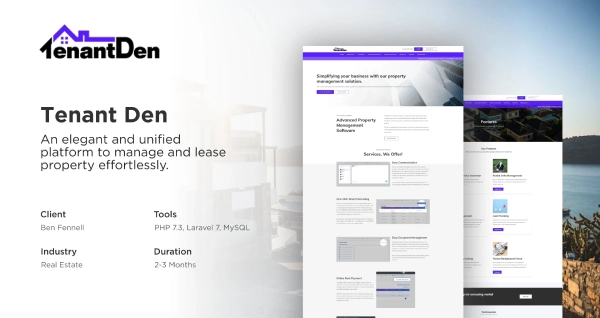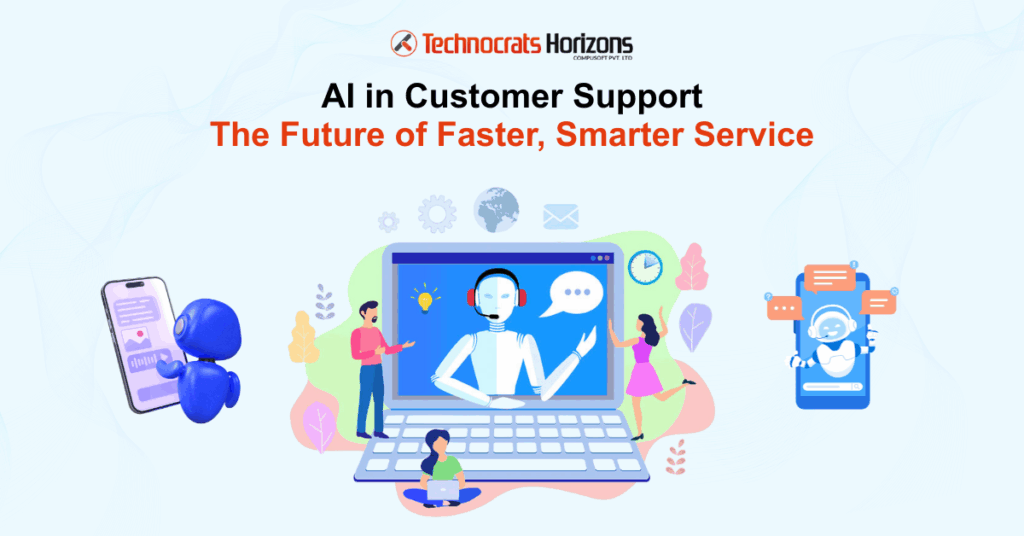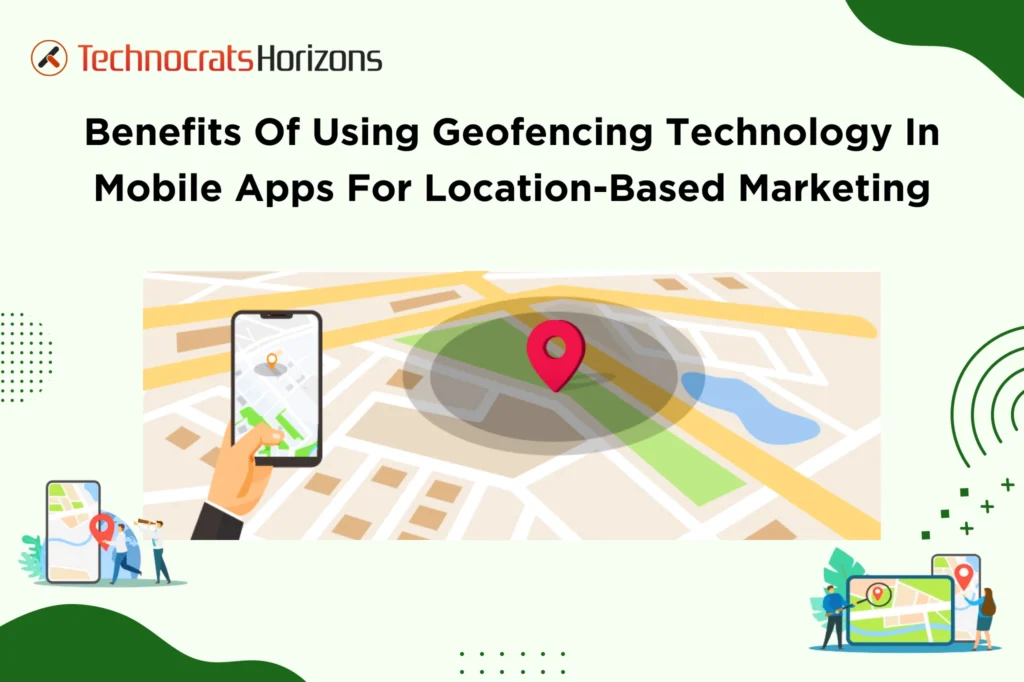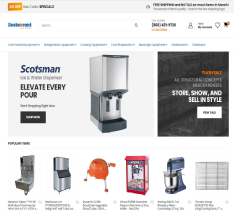What is the best platform for eCommerce websites in 2023?
Like a lot of questions in life, the response depends upon who you ask. Well, you need not ask around because we have done the research for you!
The options can seem limitless when selecting an eCommerce platform for your company. You must evaluate your budget, the features and tools you need, and other crucial factors while deciding on the Commerce platform.
As different platforms have distinct characteristics, it’s crucial to pick one that closely matches your sales strategy and objectives. We’ve compiled a list of the top eight eCommerce platforms to assist you in making that choice.
This blog post will go through all of them discussing their specifics, pros, and cons, so by the end of this post you get enough clarity on the best platform for eCommerce websites.
Let’s begin now!
What is an eCommerce Platform?
An eCommerce platform is a software application that enables companies to set up an online store. It gives businesses the resources they need to set up, promote, and sell their goods and services online. eCommerce platforms include capabilities for managing inventory, payments, shipping, and taxes, as well as a variety of marketing tools including email campaigns, coupon codes, and analytics.
Also, they offer templates for developing and personalizing the visual appearance of your online business. Sellers can control cataloged goods, track purchases, and control consumer experiences through an eCommerce platform. Overall, the best platform for eCommerce websites enables businesses of every size to sell their goods and services globally and reach a larger audience.
8 Best Platforms for eCommerce Websites
1. Squarespace
Squarespace is a website building and hosting business located in the USA. It currently has more than 465K active online stores and has brought in more than $620 million.
If you’re just getting started with your online store, Squarespace’s Personal and Business plans are your best options. Rest assured with Squarespace’s eCommerce options which are ideal for growing and mid-sized businesses.
Before buying any plan, you can also use its free trial option. Using Squarespace is fairly simple. Yet it’s not as easy to use as its competitors. Although the UI features are simple, you still need to spend some time getting used to them.
In light of Squarespace’s difficult interface, it can be concluded that it is not the best option if you are a novice.
How Squarespace helps Users?
Starting off, Squarespace is a feature-rich eCommerce platform where consumers can take advantage of countless advantages at a very low cost. Every package offered by Squarespace includes unlimited storage and bandwidth, an SSL certificate, professional SEO tools, award-winning website themes, and many more features.
Now let’s say you’ve invested in Squarespace’s advanced business plan. If so, then you will also have access to additional features like advanced shipping options, abandoned cart recovery, and email marketing tools.
Squarespace doesn’t charge any transaction fees at all. So, it’s a win-win scenario for retailers.
Make sure to visit this website for further information.
Pros:
- Offers visually stunning templates that are easy to customize
- Built-in blogging functionality
- Mobile-responsive design
- Integrates with ShipStation for easy shipping and fulfillment
Cons:
- Limited third-party app integrations
- Limited payment gateway options
- No abandoned cart recovery feature in basic plans
2. Shopify
If you have any interest in online shopping then Shopify eCommerce platform is probably the first one that comes to mind. Shopify is one of the most well-known eCommerce solutions in the world, with millions of businesses in 175 countries.
The package includes hosting, a content management system, database settings, and SSL certificates—everything you need to establish your store. You can choose from a large selection of mobile-friendly eCommerce themes as well.
These themes can be simply modified to match the colors and styles of your business, and they are ready to use right out of the box.
For those just starting out in eCommerce, Shopify also offers some basic marketing tools. More advanced tools can be found in the Shopify Marketplace. App Store offers both free and paid plans.
Shopify offers a complete eCommerce solution despite not being the most affordable one. For non-technical clients who prioritize simplicity and easygoing solutions, it is the best option.
Pros:
- Wide range of third-party app integrations
- Easy to use and manage the store
- Good SEO tools with built-in SSL certificates
- Excellent abandoned cart recovery feature
Cons:
- Limited customization options for themes without knowledge of coding
- Transaction fees for using third-party payment providers
- Higher monthly fees than some competitors
3. BigCommerce
With over $25 billion in sales across 120 countries, BigCommerce is among the leading eCommerce platforms. BigCommerce eCommerce platform is suitable for big retail brands due to its robust product search engine. Also, with $25 billion in sales even if you don’t have a web developer, setting up an eCommerce site is fairly easy with the BigCommerce user interface.
This feature gives a lot of growth opportunities to eCommerce companies. In addition, there are numerous, simple-to-use features including client segmentation, abandoned cart recovery, payment processing (with 65 payment gateways), and others. BigCommerce provides an easy-to-use visual editor for website design that enables you to modify the appearance and feel of your website without using any code.
BigCommerce, a dominant force in the eCommerce industry, has hundreds of sophisticated enterprise built-in connections, including ActiveCampaign, Webgility, Avalara Tax, Stripe, and more. Moreover, BigCommerce enables you to sell directly on online shops like Amazon and eBay. The inventory management elements include stock level data, price changes, and consumer behavior insights.
The analytics tool enables you to keep tabs on information such as your top clients, the typical order value, net sales, refunds, and other data that will speed up your product scaling capabilities.
Pros:
- Strong built-in features like abandoned cart recovery and customer segmentation
- Wide range of payment and shipping options
- Easy integration with major marketplaces like Amazon and eBay
- Good SEO tools
Cons:
- Customization options may require coding knowledge
- Limited design templates compared to other platforms
- Transaction fees for using third-party payment providers
4. Wix
For businesses that never plan to host a huge amount of products, Wix is without a doubt the greatest choice.
Although Wix officially permits you to sell limitless products, in practice, its most prosperous users tend to focus on a small number of products that they can effectively market using Wix’s top-notch website builder.
You can start without any cost with one of the 122 free templates available for online stores. By the time you read this post, that number might be far lower because Wix is always introducing new choices for online store owners.
In fact, compared to the other platforms discussed here, it has more eCommerce templates. To determine whether you like the user interface, start customizing a Wix online store template right now.
According to web designers who have experience with both Wix and BigCommerce. From a design standpoint, they thought Wix was “excellent” and ideal for small enterprises without incredibly complicated or large inventories.
Pros:
- User-friendly drag-and-drop interface
- Good selection of templates and design options
- Affordable pricing
- 24/7 customer support
Cons:
- Limited eCommerce features compared to other platforms
- Limited payment gateway options
- Limited customization options for checkout pages
5. Hostinger
Hostinger is one of the most well-known and reliable web hosting services available right now. You can create your own online store from scratch using Hostinger’s great website builder.
Anybody wishing to get their eCommerce store up and running quickly without losing flexibility or extension in the future should choose this solution. Under a single subscription, you get free domain registration, managed WordPress hosting, and an eCommerce website builder.
Choose Hostinger if you value simplicity without restraints. Starting out, there is no need to switch between different platforms, and as the website is built on WordPress, you have countless customization choices as your plan to expand your eCommerce store in the future.
Customers use Hostinger because it provides all the essential eCommerce features for setting up and running an online store.
Finding a web host, purchasing a domain, and connecting that domain to your host before developing and establishing a store may terrify newcomers in this field. Nevertheless, you can get all of this from Hostinger.
Not to mention that your eCommerce store is powered by one of the market’s quickest and most reliable web hosting companies. Hostinger can expand with you as your eCommerce store expands and your traffic increases, ensuring your site has the fastest loading times and best performance. This makes it one of the, if not the best platform for eCommerce websites.
Pros:
- Affordable pricing
- User-friendly interface
- Good selection of templates and design options
- Good SEO tools
Cons:
- Limited eCommerce features compared to other platforms
- Limited payment gateway options
- Limited customization options for checkout pages
6. WooCommerce
WooCommerce is the finest eCommerce platform for WordPress sites, which enables quick store setup. With official extensions from the WooCommerce Marketplace, you can expand the functionalities of your business and add features using this eCommerce platform’s fully customizable interface. With this platform, you can use the WooCommerce Mobile App to manage your business while on the road. You can also give orders, produce features and monitor important statistics in real time.
WooCommerce is scalable, user-friendly for developers, and simple to integrate with any service. To create your store your way, WooCommerce enables you to add a single product to a WordPress site, enhance an existing store for a client, or create a complex store from the scratch.
With more than 80 meetups worldwide, WooCommerce is one of the eCommerce communities with the quickest growth. Also, you can operate remotely from 58 different locations while offering customer service in various time zones.
WooCommerce offers a variety of eCommerce services, including payment processing and inventory management. Additionally, you can add hundreds of extensions to it, including tools for shipping, marketing, and managing stores.
Several third-party websites, like ThemeGrill, offer free and paid WooCommerce themes in terms of style. Plus, you can install any of the themes and plugins available through the official directory and take full advantage of WordPress’ fully editable templates.
You can contact WooCommerce’s customer support staff by creating a ticket, and the team will respond to your query over live chat. There is no way to contact support by phone or email. Overall, WooCommerce has built its reputation as one of the best platforms for eCommerce websites.
Pros:
- Offers complete control over the design and functionality of the store
- Free and open-source
- Integrates with WordPress
- Good selection of payment gateway options
Cons:
- May require technical knowledge to set up and maintain
- Limited built-in features
- No customer support
7. Magento
Magento is an eCommerce-focused CMS that can be used to build medium- to large-scale eCommerce stores.
This eCommerce platform provides two options: hosted software Adobe Commerce and Magento Open Source.
With its marketplace and other third-party websites like ThemeForest, Magento Open Source provides a wide selection of pre-designed templates.
Users have the option to save their page and content templates so they can use them on different websites. Moreover, Magento offers content staging so customers may make changes to their web design in a different setting without affecting the actual website.
Magento supports sales of digital products including memberships, subscriptions, and services. You can purchase additional functionalities for your website using the Magento Marketplace, like themes, analytical tools, and payment options.
Due to Magento’s open-source nature, expert users can add custom code as required. As a result, it is among the top eCommerce platforms for people wishing to create a robust and highly adaptable online store.
Magento offers a sizable community full of developers who can assist with technical problems. Remember that some developers can ask for a support fee.
On the other hand, Adobe Commerce offers a page builder in addition to tools for consumer segmentation and data reporting. Its features evaluate consumer behavior using sophisticated algorithms and AI technologies to provide them with individualized shopping experiences and product recommendations.
Pros:
- Highly scalable and customizable
- Wide range of third-party extensions and integrations
- Strong SEO tools
- Good for enterprise-level businesses
Cons:
- May require technical knowledge to set up and maintain
- Expensive to host and maintain
- Limited design templates compared to other platforms
8. Volusion
Last but not the least, Volusion is the last eCommerce platform this blog post will discuss. This website platform, like Wix, is intended to assist merchants in swiftly setting up their stores. With this platform, you can avoid all of the traditional technical difficulties connected with web development, such as coding.
Because of its no-coding setup procedure, Volusion is accessible to all vendors, regardless of their level of technical expertise. Alternatively, you can work with Volusion’s own design team to create something more to your taste if you’d prefer a more customized online store.
Additionally, the technology offers a checkout solution that aids in decreasing cart abandonment. Volusion offers product video alternatives for better visuals on product pages to improve the user experience.
To maximize sales on your product page, you may also use their suggested items function. For this feature, you won’t need a third-party integration, in contrast to other eCommerce platforms like Shopify.
The drawbacks that are stopping Volusion from becoming the best platform for eCommerce websites are its inability to sell digital goods like music, eBooks, or digital artwork. This limits its abilities for many industries.
Volusion’s Premium Theme Plus package includes a premium theme, expert installation, Google Analytics installation and migration, and simple modification within the limits of the theme you choose.
Users can also link Google Analytics to their stores to gain access to Google’s robust reporting features and other eCommerce tools.
Pros:
- Good selection of design templates
- Built-in features like abandoned cart recovery and social media integration
- Good payment gateway options
- Good SEO tools
Cons:
- Limited third-party app integrations
- Limited customization options for themes
- Limited design flexibility
Conclusion
You must consider the things that customers will demand if you want your online store to grow. Is your eCommerce platform able to handle multiple languages and currencies or offer customer care via an automated chatbot? Can you set up email marketing, a loyalty program, and user accounts for customers?
The more your online store expands, the more crucial these features become. eCommerce systems must have options for complex functionalities and deep integrations, as well as basic features at a cheaper starting price range. Finding the best platform for eCommerce websites can be a difficult task.
Here, we come into the picture! Technocrats Horizons is the leading eCommerce solution company that delivers the ultimate eCommerce solutions on the best platform for eCommerce websites. Reach out to us for expert eCommerce solutions.
Win your customers with eCommerce development services! Let's Discuss Now!!
Struggling with generic eCommerce platforms?
Get a custom solution built just for your business model.











 Request a
Request a





















